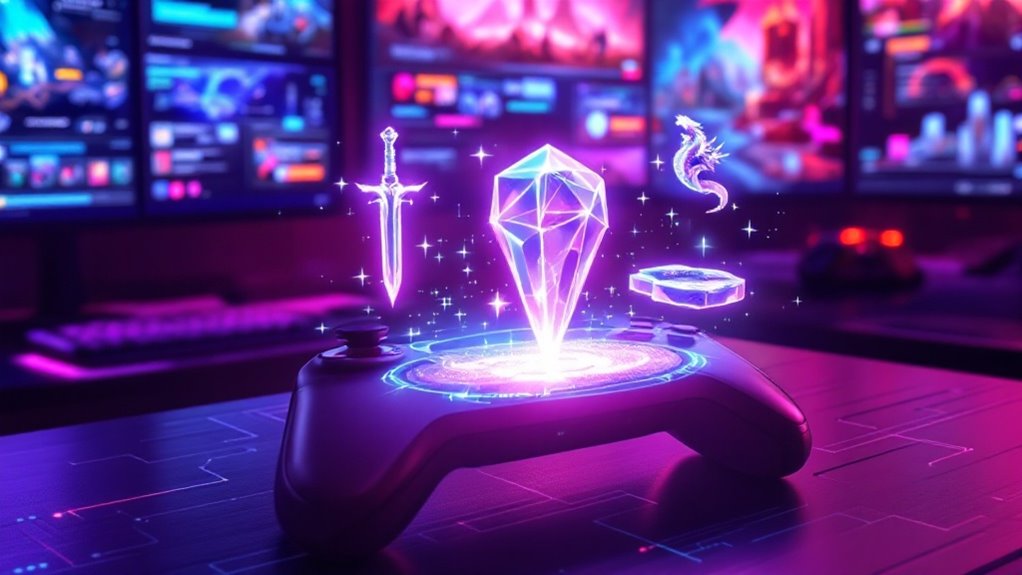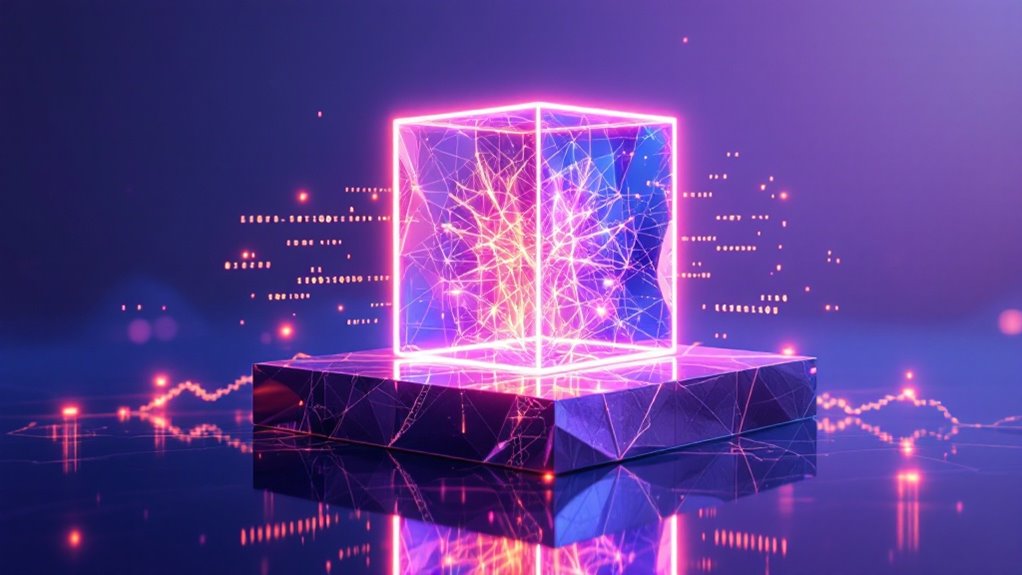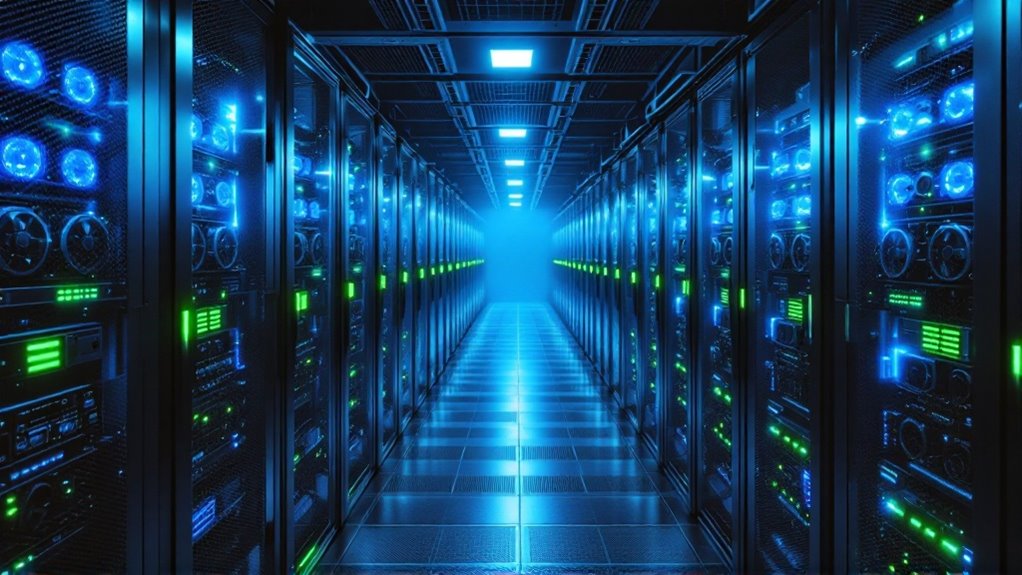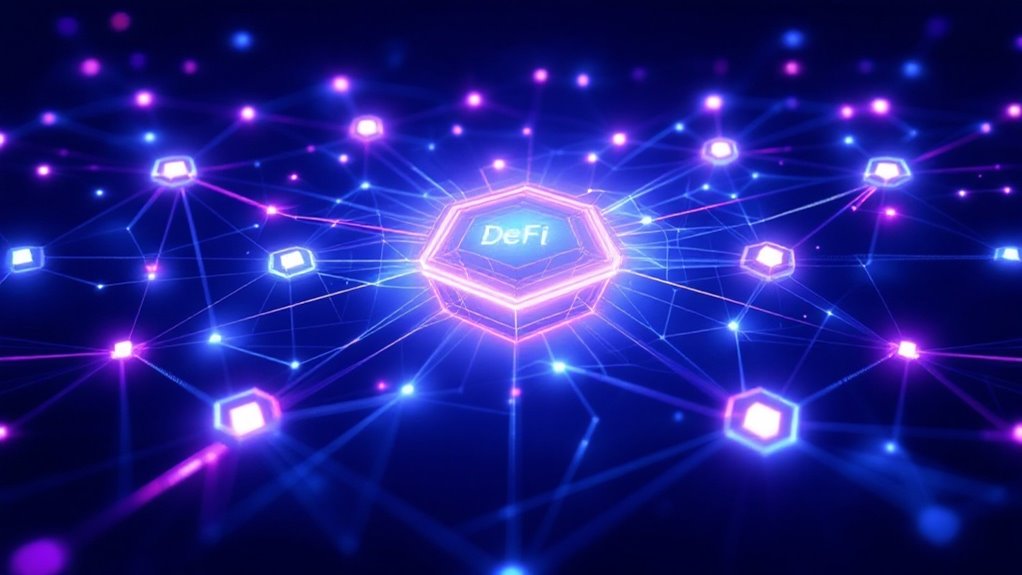NFTs have transformed gaming into a new frontier where virtual items hold real-world value. Through blockchain technology, players can truly own and trade digital assets like character skins, weapons, and virtual real estate across vibrant marketplaces. While transaction fees and environmental concerns exist, NFTs are reshaping gaming economics by allowing players to earn income through skilled gameplay. This evolving digital landscape, worth over 410 billion dollars, points to an intriguing fusion of traditional gaming with blockchain innovation.
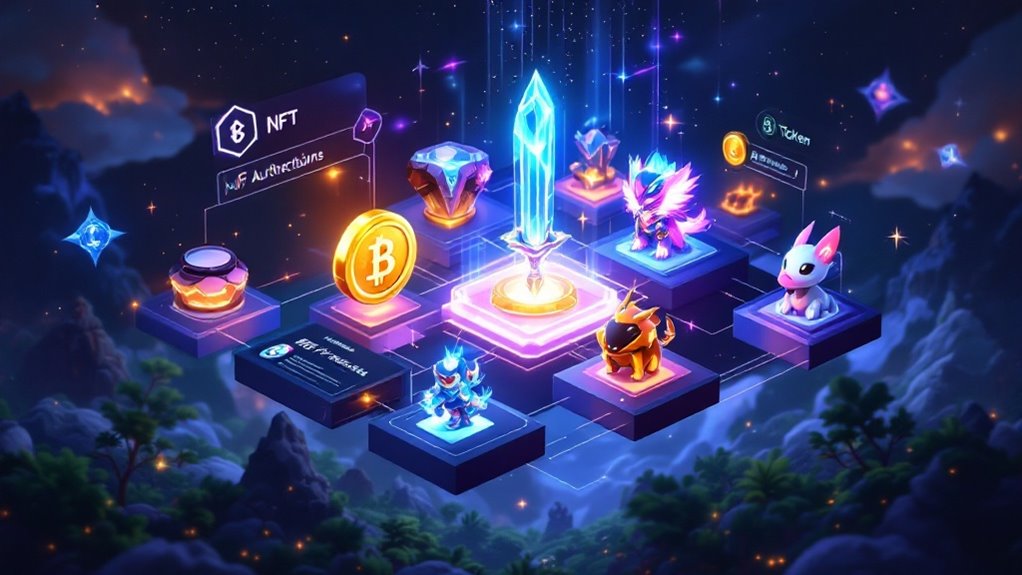
As gaming evolves beyond traditional pixels and polygons, Non-Fungible Tokens (NFTs) are reshaping the digital playground in ways that both excite and perplex the gaming community. These unique digital assets, secured by blockchain technology, have transformed virtual swords and colorful character skins from mere game data into verifiable digital property that players can truly own, trade, and even sell for real-world value. The easy verification of authenticity on blockchain networks has made transactions more secure and trustworthy than ever before.
The gaming landscape now sparkles with digital marketplaces where players trade everything from mystical creatures in Axie Infinity to virtual real estate in Decentraland. The industry's market value has reached 410.92 billion dollars in 2023. Like collectors of physical trading cards, gamers are building portfolios of digital assets that exist independently of game servers, free from the traditional "you play, we own" paradigm that has dominated gaming for decades. While digital ownership doesn't automatically grant copyright rights, it provides an immutable record of possession on the blockchain.
Digital marketplaces have transformed gaming into a trader's paradise, where virtual assets finally belong to players instead of publishers.
These digital treasures shimmer with the promise of interoperability, potentially allowing a player's prized sword to slash through monsters across multiple virtual worlds.
Yet, this golden age of digital ownership isn't without its thorns. Transaction fees can bite like a hungry CryptoKitty, and environmental concerns about blockchain energy consumption cast long shadows over the virtual festivities. Some veterans of traditional gaming view NFTs with the same skepticism as a seasoned warrior eyeing a suspicious power-up, wondering if this new technology is truly revolutionary or just another fancy loot box in disguise.
Despite these challenges, the integration of NFTs has sparked a renaissance in gaming economics. Players are earning real income through skilled gameplay and trading, while developers are discovering new revenue streams through NFT sales and royalties.
Gaming guilds have emerged like medieval trading houses, orchestrating vast virtual economies and creating job opportunities in this brave new digital world.
The future beckons with tantalizing possibilities as NFTs merge with virtual and augmented reality experiences. Imagine wearing your NFT-authenticated virtual armor to both slay dragons and attend digital concerts, or using your unique digital assets as keys to exclusive gaming experiences.
As the lines between traditional gaming and blockchain technology blur, one thing remains clear: the game has changed, and players are now holding the controllers to their digital destinies.
Frequently Asked Questions
Can NFT Gaming Assets Be Transferred Between Different Gaming Platforms?
Gaming assets can be transferred between compatible platforms using cross-chain protocols like Chainlink CCIP. However, technical challenges and varying blockchain standards currently limit seamless transfers across all gaming ecosystems.
What Happens to NFT Game Items if the Game Shuts Down?
When a game shuts down, game items become non-functional and lose their utility. While the tokens remain on the blockchain, their practical value often diminishes considerably unless developers implement cross-game compatibility or alternative uses.
Are NFT Gaming Transactions Taxable in Most Countries?
Yes, NFT transactions are generally taxable in most countries, typically subject to capital gains and income tax regulations. Tax authorities commonly require reporting of NFT sales, trades, and earnings on annual tax returns.
How Do Game Developers Profit From Secondary NFT Marketplace Sales?
Game developers profit from secondary marketplace sales through transaction fees, ongoing royalties, increased primary sale values, and valuable market data that informs future product development and pricing strategies.
Can Traditional Game Items Be Converted Into NFTS Retroactively?
Converting existing game items to NFTs retroactively is technically possible through blockchain smart contracts and metadata mapping, but requires significant infrastructure updates, player consent, and careful consideration of existing ownership rights.
